
Radu Jude and the joys of making a cinema masterpiece
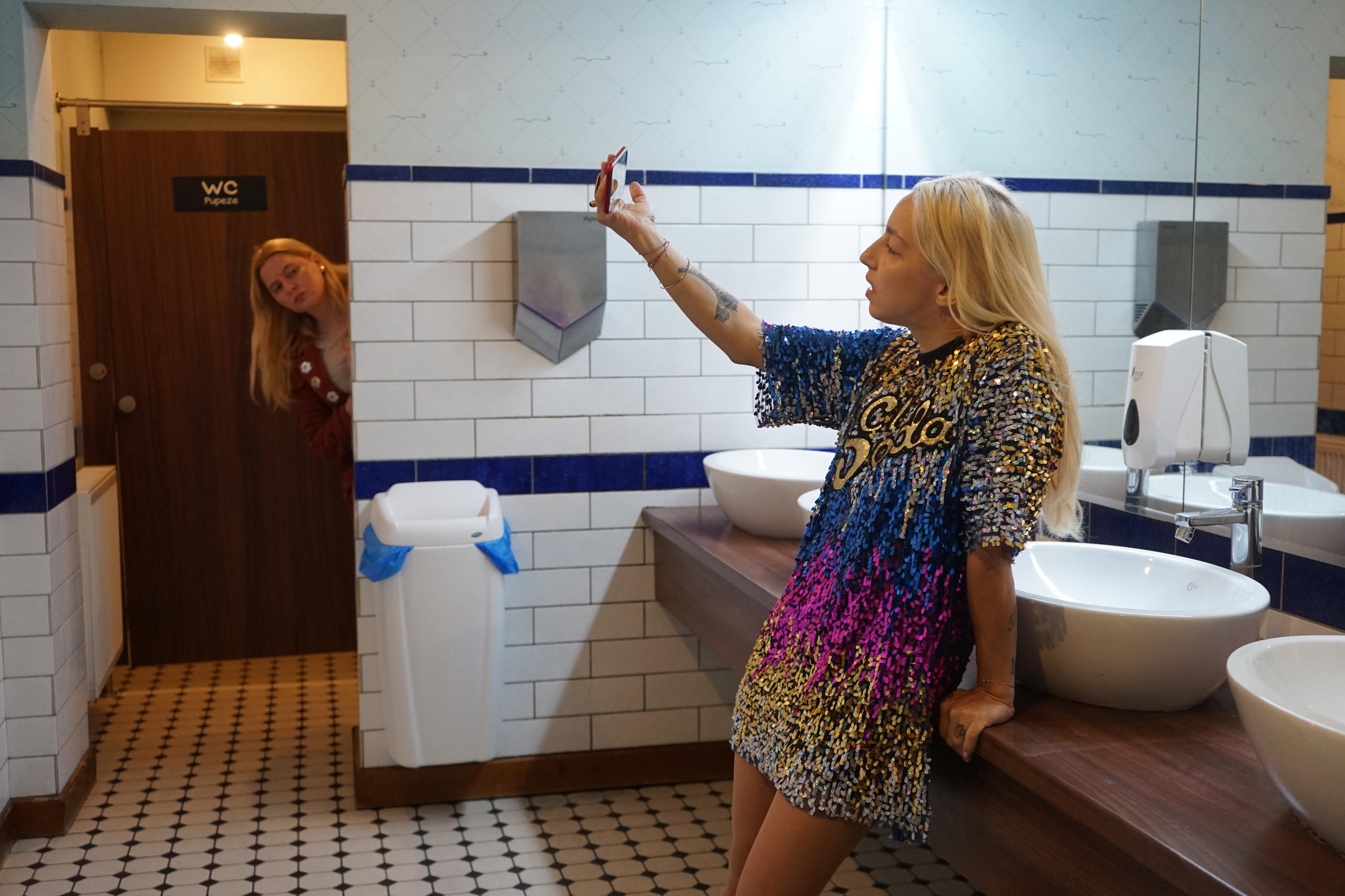
No matter how good a film festival programme may be, there is no guarantee it will leave its mark on cinema history. This year’s Locarno Film Festival offered a rare masterpiece: Do Not Expect Too Much from the End of the World by Romanian director Radu Jude. His film won a Special Jury Prize at this year’s festival.
Jude’s latest film gained almost unanimous critical acclaim at this year’s festival although it has yet to be released to the public. Do Not Expect Too Much from the End of the World offers numerous layers of interpretation: a masterly combination of narrative techniques, subtle and not so subtle historical and literary references, absurdist jokes, and the ubiquitous presence of TikTok.
It is a film about filmmaking, about the precarity of labour conditions in the broad economic sense but also within the film industry. It is about Western European exploitation of Romania’s natural resources – and Eastern Europe’s more widely – seen as a modern form of economic colonialism. It is about Romania’s communist past and its neoliberal present, and much more, but above all it is about the joy of filmmaking.
“Of course, we have to have fun doing it,” Jude tells SWI swissinfo.ch after the first screenings of the film in Locarno. “Otherwise, there would be no point in doing what we are doing.”
Life is more absurd than art
The plot of his latest film can be summed up as a day in the life of the sleep-deprived film production assistant Angela (Ilinca Manolache). She spends all day driving in heavy Bucharest traffic, searching for victims of work accidents to be auditioned for a documentary commissioned by an Austrian multinational to clear it from any responsibility in the sad fate of its workers. The film was based on a true story of a young woman who, after several days working endless hours for a film production company, fell asleep at the wheel and died in a car crash.
Radu Jude has been a celebrated filmmaker outside Romania since winning the 2021 Golden Bear, the top prize at the Berlin Film Festival (Berlinale) with Bad Luck Banging or Loony Porn. The director is a cinephile and workaholic. If he is unable to start shooting a feature film, he fills his time working on several short films at the same time, experimenting with formats (and jokes). SWI swissinfo.ch caught up with him at the start of this year’s festival.
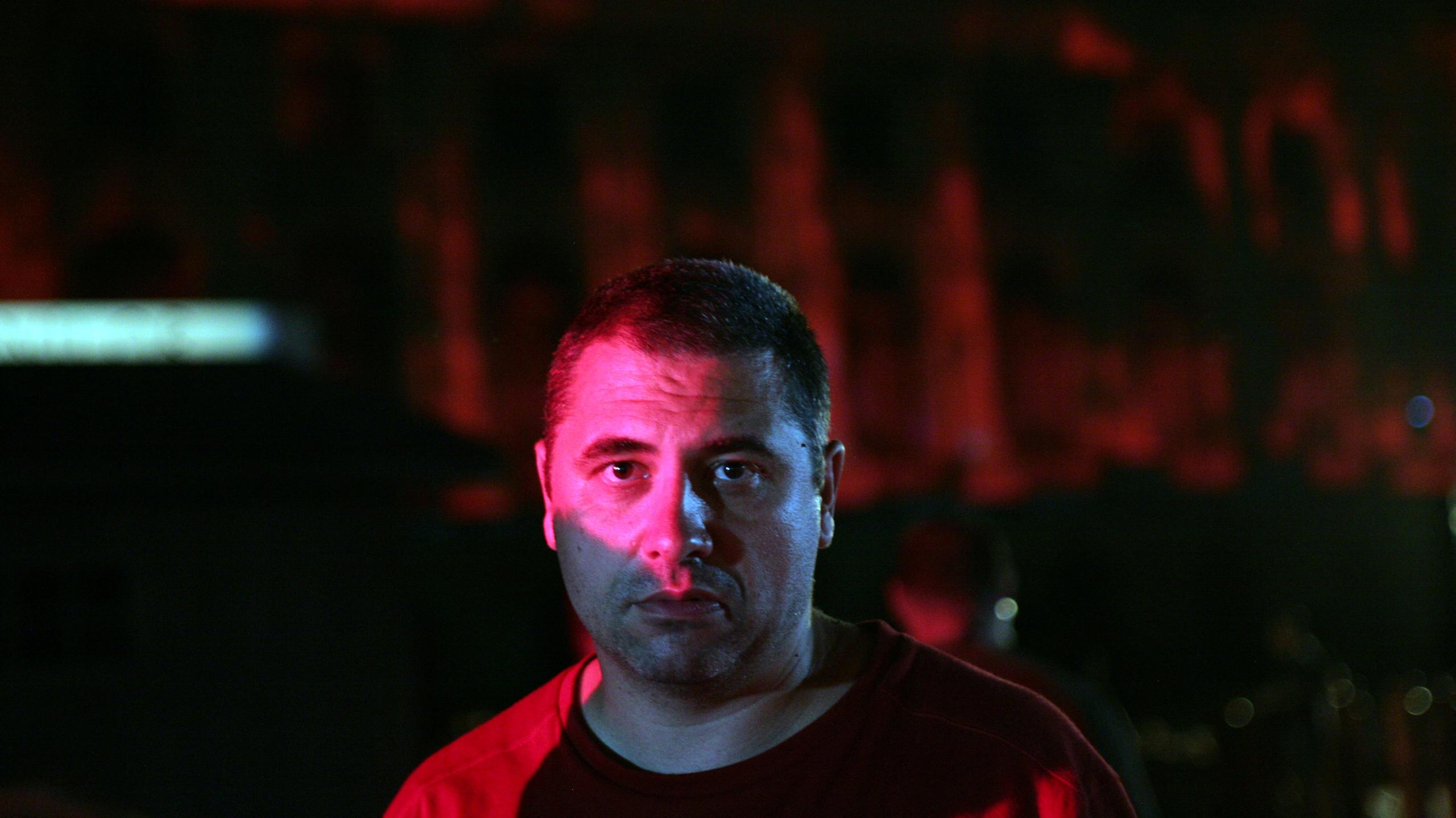
SWI: Congratulations for your film. We think it is even better than the latest Mission: Impossible.
Radu Jude: I love Mission:Impossible. Is the new one any good? I want to see it. But I didn’t like the last one by [director] Christopher McQuarrie. What’s the title?
SWI: Fallout?
R.J.: Fallout, yes. Chinese propaganda. But no, I’m going to see the new one as soon as possible. But I’ve seen Barbie and Oppenheimer – I’m a civilised guy.
SWI: Returning to your own films, many of them deal in one way or another with Romania as a multi-ethnic, multicultural nation. Where do you fit in there, also considering your last name [‘Jude’ is also ‘Jew’ in German]? Do you have a Jewish background at all?
R.J.: That’s a good question. I’m not Jewish. Now, [French psychologist] Jacques Lacan would say something interesting about why a guy whose name is Jude – which means “judge” in Old Romanian – makes three films about the Holocaust without being Jewish.
But in a way, I became one. When I got the Golden Bear [award in Berlin], a Romanian newspaper put a yellow star on a picture of me, and they said, “Radu Jude won the Golden Bear for a pornographic movie.” The whole article was an antisemitic attack, saying I should go back where I come from – Israel.
My father is from Transylvania, from the Romanian part. The name Jude is not that rare in some parts of Transylvania. Both my parents are from poor villages in the countryside. My mother is from a village 60 kilometres outside Bucharest.
SWI: You grew up in Bucharest?
R.J.: I grew up in the countryside, with my grandmother on my mother’s side. That was the most beautiful childhood I could have ever had. It was a village like in the Middle Ages. And when you’re a kid, you don’t see the bad parts, the poverty and all that. It was full of kids, full of people, full of animals, full of nature, full of water. Sometimes kids died; they drowned. I saw a lot of children dying, now that I think about it. But it was a very beautiful childhood.
And then, because my parents were working in Bucharest, I had to go to school there. But I spent all my holidays in the countryside. Until high school, I felt like a country kid forced to live in a big, horrible city. And I think that stayed with me.
SWI: Many of your films, including your latest one, mention not only the status of Jews in Romania, but also that of Romani people.
R.J.: That’s truer for the historical films that I’ve made. When I made Aferim! (2015), a film about the history of the enslavement of the Roma, I always mentioned that I made it from the point of view of a Romanian, not of a Roma. The same is true for my films about the destruction of the Jews.
Both topics are quite taboo in Romania. But I made these films from the perspective of Romanians, of the perpetrators. I don’t believe in a collective guilt, but they belong to the majority population. And I don’t belong to the minority. There is some criticism from Roma communities, but there was also a lot of praise for Aferim! For instance, Gelu Duminică, a well-known Roma activist, said he finds the film much more important because it was made by a Romanian and not by a Roma person.
This kind of political correctness… I don’t want to generalise, because it’s a phenomenon that I think is very good in some ways, and not so good in others. But I really think that this idea that today everybody should speak only for their own category or community is wrong. Of course, it depends on what you’re doing, but art, culture, and cinema are meant to make us understand others.
So, if you say that only Roma should make films about Roma, Romanians about Romanians, gay people about gay people, trans people about trans people, and nobody else has the right to speak about the others, I think that’s wrong. As I said, it depends on how you do it.

SWI: How do you see Romania dealing with its past, meaning the last 100 years or so? Do you think it’s going backwards? Is there a backlash to some of the progress that has been made?
R.J.: It’s a question that I wouldn’t phrase like that, because I don’t believe in history repeating itself. Like in every country, but especially in a small country like Romania, history is used for identity, so the relationship with history is crucial. When I look at the dark spots of Romanian history, I see a lot of connection between the past and the present. That’s why I want to make films about these kinds of connections. But every country has that. I think it’s also the duty of art to investigate that.
Sometimes people criticise me for making such films. But in a way, speaking optimistically, the existence of these films shows that the society is strong. If our society is strong, it can accept criticism. Only in weak societies do you go to jail for this kind of criticism. Only weak societies burn books and movies. Romania is not a very stable and mature society, but there are signs that it’s starting to be one. [to Alan Mattli] Where are you from?
SWI: Switzerland.
R.J.: Let’s speak about the banks. (laughs) I saw this documentary, La Suisse, coffre-fort d’Hitler, that shows that Switzerland took all that money from Hitler, helped Hitler – and they called Switzerland a neutral country. And nowadays, Switzerland helps Putin and the invasion in Ukraine, basically.
SWI: Talking of Ukraine and the historical films that you’ve made, your last two big festival titles, Bad Luck Banging or Loony Porn in 2021 and now Do Not Expect Too Much from the End of the World, engage with the current political times in a very direct way. Have your interests shifted in some way?
R.J.: Yes, I think so. I made five or six feature films and five or six short films in a row that all dealt with history, the history of Romania, and the dark spots of Romanian history. I think I’m finished with that now. I might have one more project connected to history, but to be honest, I feel I have exhausted the subject for me. At least for a while, I want to focus on films dealing with contemporary life and events.
But I think the exercise of being forced to reflect on history and on how you represent the past in cinema helped me understand the problems of representation better. So even my new films, the contemporary ones, are historical in a way. They try to capture the historical fluxes and movements that are all around us with the same eye – as if they were made by an alien or by someone from 2,000 years in the future. Cinema can help us see contemporary things in a historical dimension.
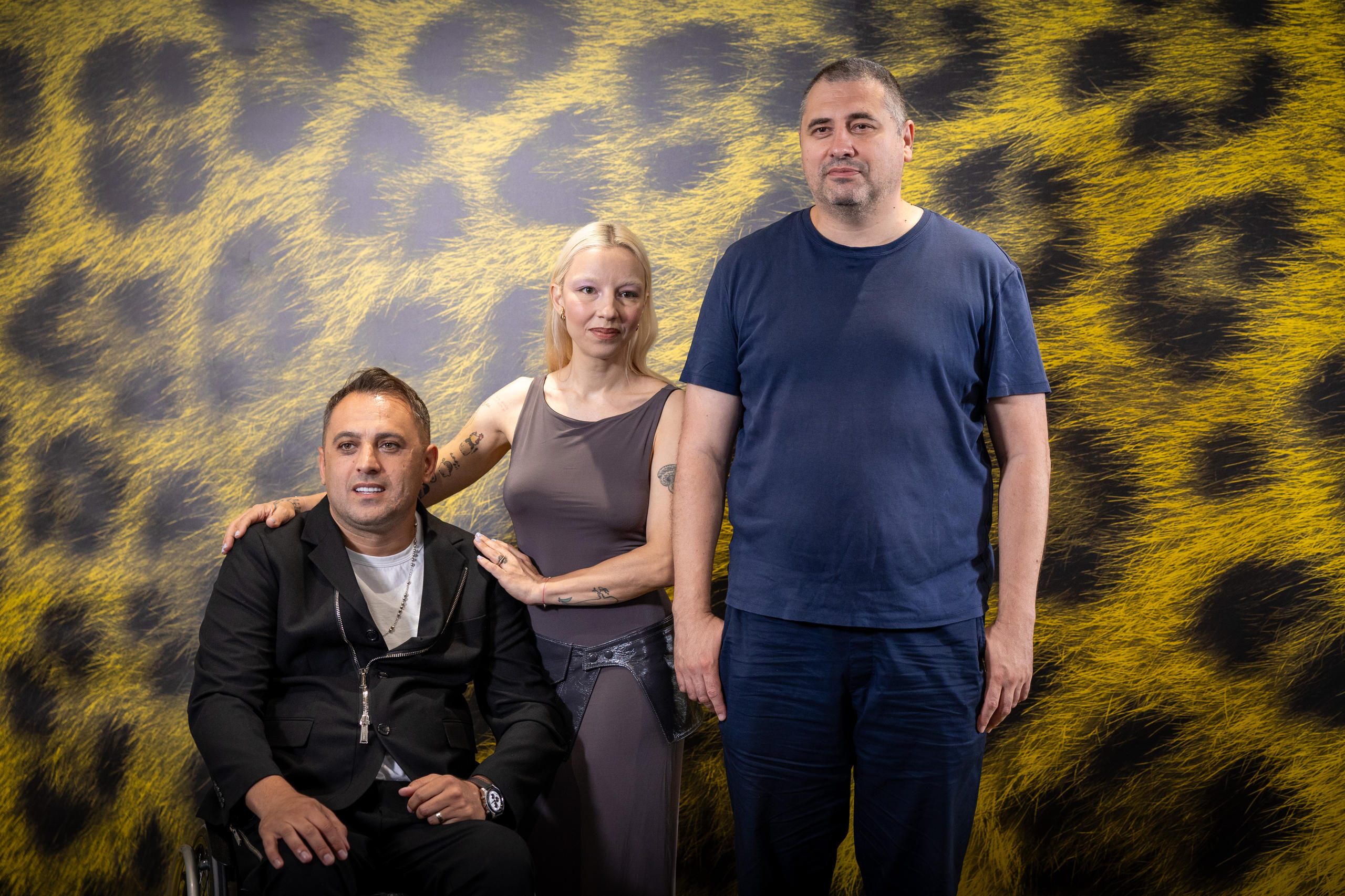
SWI: Your movie starts from the premise that Romania is basically a mess – but it also seems to suggest that the country gives people the creativity and the self-irony that are necessary to deal with this.
R.J.: That’s true – in a good way and in a bad way. I have a residency for a project in Berlin for a few months. It’s a great city, very nice; I’ve got a place to live and a small salary. Everything’s OK. But then I go out and see how everything’s so neat and so organised, and I wonder what films I could make here. The situation in Romania, on the other hand, with the craziness in society is a more fertile soil for literature, the arts and cinema.
SWI: What draws you to include so many quotes from literature and cultural theory in your films? Is that another fertile source?
R.J.: I think that’s my way of thinking. I always need to use other people’s thoughts and other people’s works to be able to think for myself. And why not incorporate quotations? Why should I write the dialogue myself when this is much more fun? It’s like the pleasure of sharing something with someone. When you know a good joke, you want to tell it to someone. I’m like that. When I read a good book, I want to share it – I give it to you as a present. The jokes in the film are quotes that I wrote down months or years before making the film.
SWI: In your latest film, you also describe how the 20th century echoes the 21st century, drawing an arc from the capitalistic dimension of the Lumière brothers’ films all the way to TikTok.
R.J.: That’s true on the one hand. But this so-called primitive cinema of TikTok – despite all the problems with social networks, despite the toxic discourse, despite all the fascist propaganda, despite all the kinds of propaganda you can find – also means that anyone can make a film now.
I just have to open TikTok… [takes out his phone and opens TikTok] …and I see that it’s a lot of different things all at once. These are things that people did in early cinema too. Just look at this girl. [A video clip of a young woman dancing] Why don’t I see her in a movie? Or this animation? [A clip of an animated green creature singing a song]. Why is that not at the Annecy film festival? Or this guy? [A clip of a man dancing in a garden]. You may say it’s not a big deal, it’s trivial – but it’s not trivial for me.
I see these things as moments of cinema, and great ones too. I don’t see that spirit in films. [He keeps scrolling for a long moment, in appreciative silence.] This is much more creative than 90% of cinema today, I’m sorry. And if filmmakers were honest with themselves and didn’t fall into the traps of money and fame, they would say, “We are fucked, we’re in a crisis!” If someone on TikTok can show you that they’re better than you are, then take a step back and think about what you’re doing.
SWI: Is the current writers’ and actors’ strike in Hollywood a sign that they are rethinking these things?
R.J.: Of course, symbolically. I support all the strikes in Hollywood. But when writers say they are striking because studios are using artificial intelligence (AI) programmes to write scripts, then I’m sorry to say [to them] that this is your fault. You wrote the stupid scripts for movies and TV series that AI can generate immediately. So, try to do something better.

In compliance with the JTI standards
More: SWI swissinfo.ch certified by the Journalism Trust Initiative





























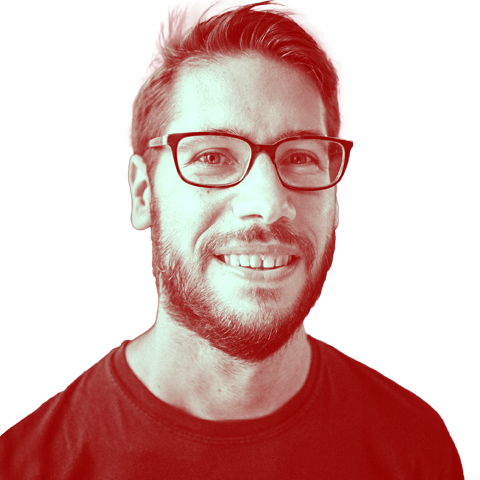
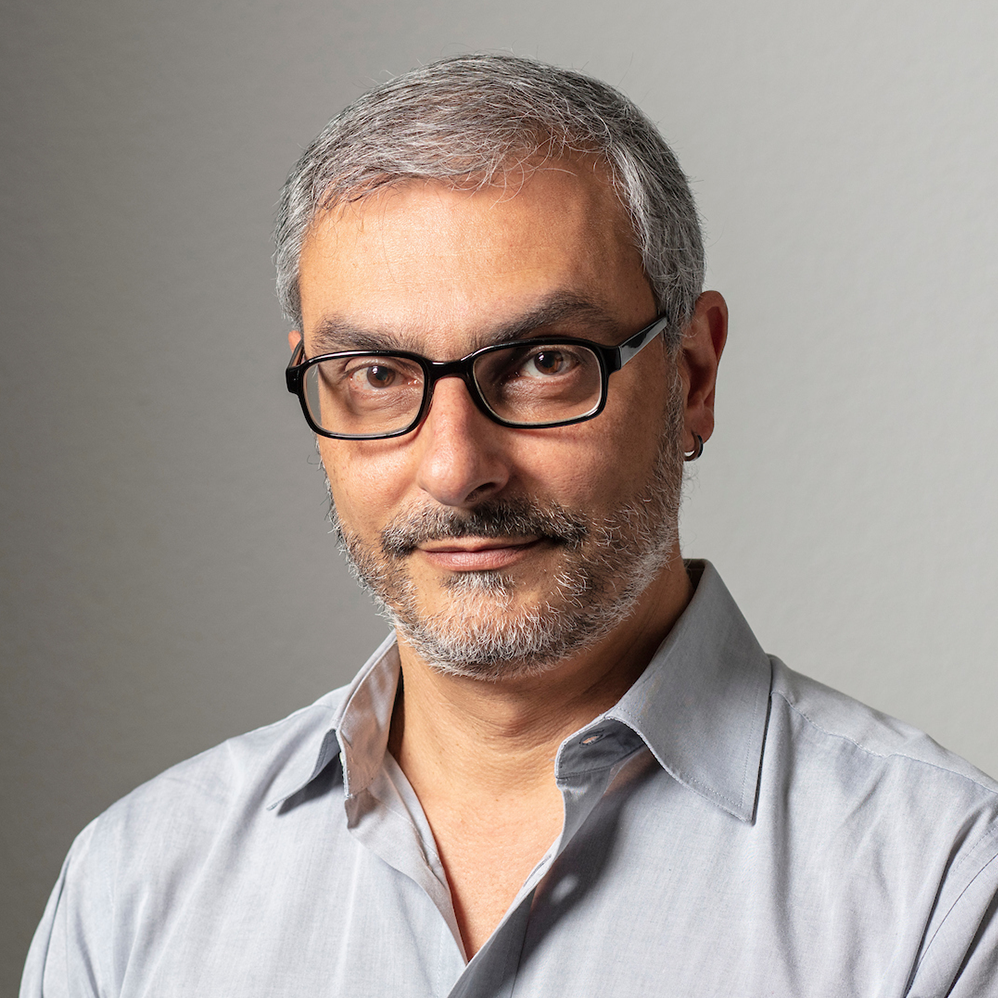
You can find an overview of ongoing debates with our journalists here . Please join us!
If you want to start a conversation about a topic raised in this article or want to report factual errors, email us at english@swissinfo.ch.